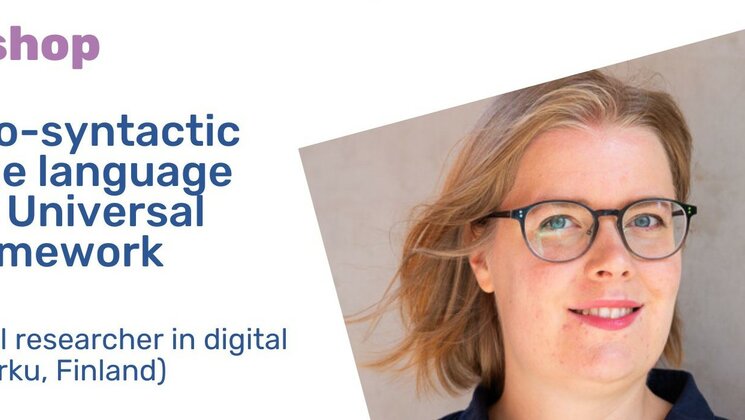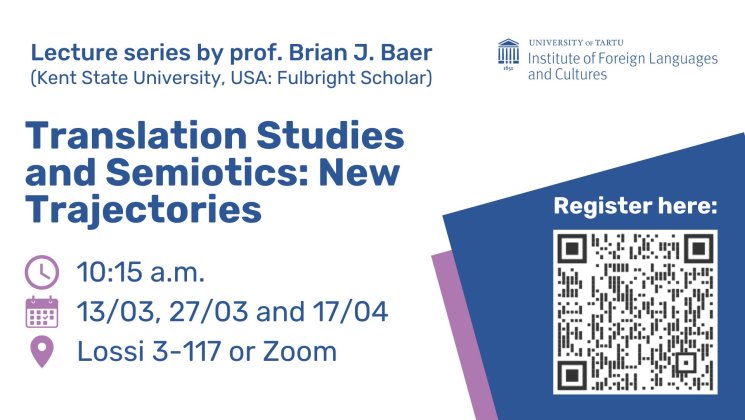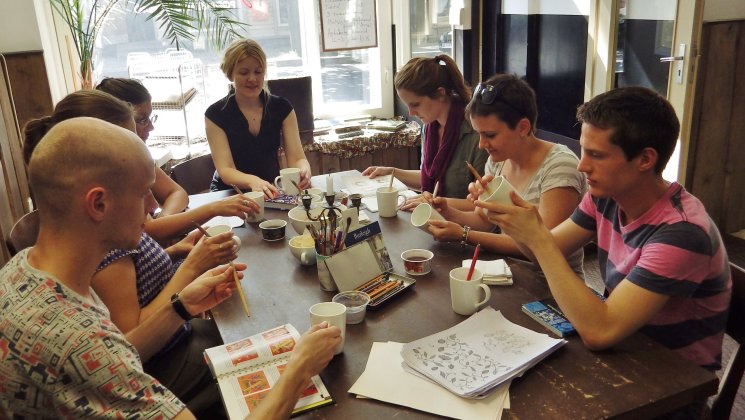The Abyss - Ethnolinguistically
Conference in Tartu, Estonia, 1/2 October 2021
College of Foreign Languages and Cultures
Liivi 4-211, 50409 Tartu
| 1 October 2021 | |
| 13:30-14:00 | Arrival and Welcome |
| 14:00-16:00 | 1. Session: |
| Opening of the Conference by Anti Selart, Dean of the Faculty of Arts and Humanities | |
| Marko Pajević (Tartu): Introduction + German ’Abgrund’, an Anthropological Category: the Ambivalence of the Human | |
| Jaanus Sooväli (Tartu): Estonian ’Kuristik’ - A Journey to the North | |
| James W. Underhill (Rouen): The Abyss in English; Languages, Attractions, Compulsions & Repulsions (online) | |
| 16:00-16:30 | Coffee break |
| 16:30-18:30 | 2. Session: |
| Florian Mussgnug / Stefano Bellin (London): Italian - Il pozzo dell'abisso: Dante, Levi, Manganelli (online) | |
| Arkadiusz Koselak (Le Rouvray): French - The organization of “the depths” or “the deep” in French through the concepts of gouffre, abîme and abysse(s) | |
| Adam Glaz (Lublin): The Abyss in Polish - otchłań | |
| Roman Leibov (Tartu): Abyss (Бездна): Russian history of the concept (XVIII-XX centuries) |
|
| 19:00 | Conference dinner |
| 2 October 2021 | |
| 9:30-10:30 | 3. Session: |
| Urmas Nõmmik (Tartu): Praising God’s Creation in Abyss: tǝhōm in the Biblical and Apocalyptic Literature | |
| Hany Rashwan (Birmingham): ‘his mother is hellfire’: The Islamic Exegesis of the Abyss – 'al-hāwiyah' through the Lens of Qurʾān and Ḥadith (online) | |
| 10:30-11:00 | Coffee break |
| 11:00-12:30 | 4. Session |
|
Sven Sellmer (Poznan): Creation and Damnation: Two Aspects of Sanskrit Abysses Download the presentation handout here: File
|
|
| Janika Päll (Tartu): Abyssos in Ancient Greek and Latin Literature and Theological Writings | |
| Daniel Sävborg (Tartu): Old Norse. Ginnungagap – the Abyss before the Creation of Earth | |
| 12:30-14:30 | Lunch break |
| 14:30-16:00 | 5. Session |
| Lisa Indraccolo (Tallinn): Abyss, Chaos, and Emptiness. A Journey to the Depths of the Chinese Intellectual Tradition (online) | |
| Frank Kraushaar (Riga): Chaos Matters. Reflections on Hundun and the Transition of Chinese Aesthetics between Pre-Modern and Contemporary Worlds | |
| Margaret Lyngdoh (Tartu): Khasi - The Abyss in the Indigenous Khasi Christian Worldview: the Assimilation to Traditional Models | |
| 16:00-17:00 | Coffee and final discussion |
| 17:00-18:30 | Tartu city promenade |
| 19:00 | Closing reception (for participants) |
About the conference
In the Christian tradition, the Biblical abyssos combines the origin of all things (Genesis 1,2) and the bottomless, the unfathomable, the dark sphere of the Apocalypse. The notion comprises both the abyss of God and the abyss of hell. This twofold dimension is particularly evident in the German word Abgrund, containing ‘the original reason’ and ‘an absence of ground’ at the same time. Even though the word Abgrund is currently often used, it mostly appears simply in the sense of a gulf or a catastrophe, quite commonly so in economic and political contexts.
Other languages use different concepts, some also have several words covering different aspects, as in French for instance with l’abysse, l’abime and le gouffre.
In European modernity, the abyss became an essential feature, embraced in its twofold character of engulfing pit and creative chaos, shifting the transcendent dimension from the divine towards the human, making it an immanent transcendence. It thus became a key dimension of humanity’s vision of itself. Humans have developed various strategies to deal with it, such as religion, arts and psychology.
By looking at the various concepts and their use in various cultures, particularly also non-European, this workshop intends to establish a better understanding of this complex notion and thus, of modernity and our present times.
Contributions are expected to look into the concepts of the abyss and their lexification, as well as into the abyss in language and culture practice, such as in proverbs and phraseology, taboos and protective measure, or reflections on the abyss in cultural history. The conference language is English but the interest of the event consists in better understanding how different cultures conceive of the abyss in their language.
A subsequent publication in the form of a special issue is planned.
Contact:
Prof Dr Marko Pajević
marko.pajevic@ut.ee
The conference is supported by the University of Tartu ASTRA Project PER ASPERA.
Watch the recordings of the conference on Youtube:
Photos: Kätlin Lehiste (UT College of Foreign Languages and Cultures)



